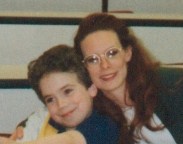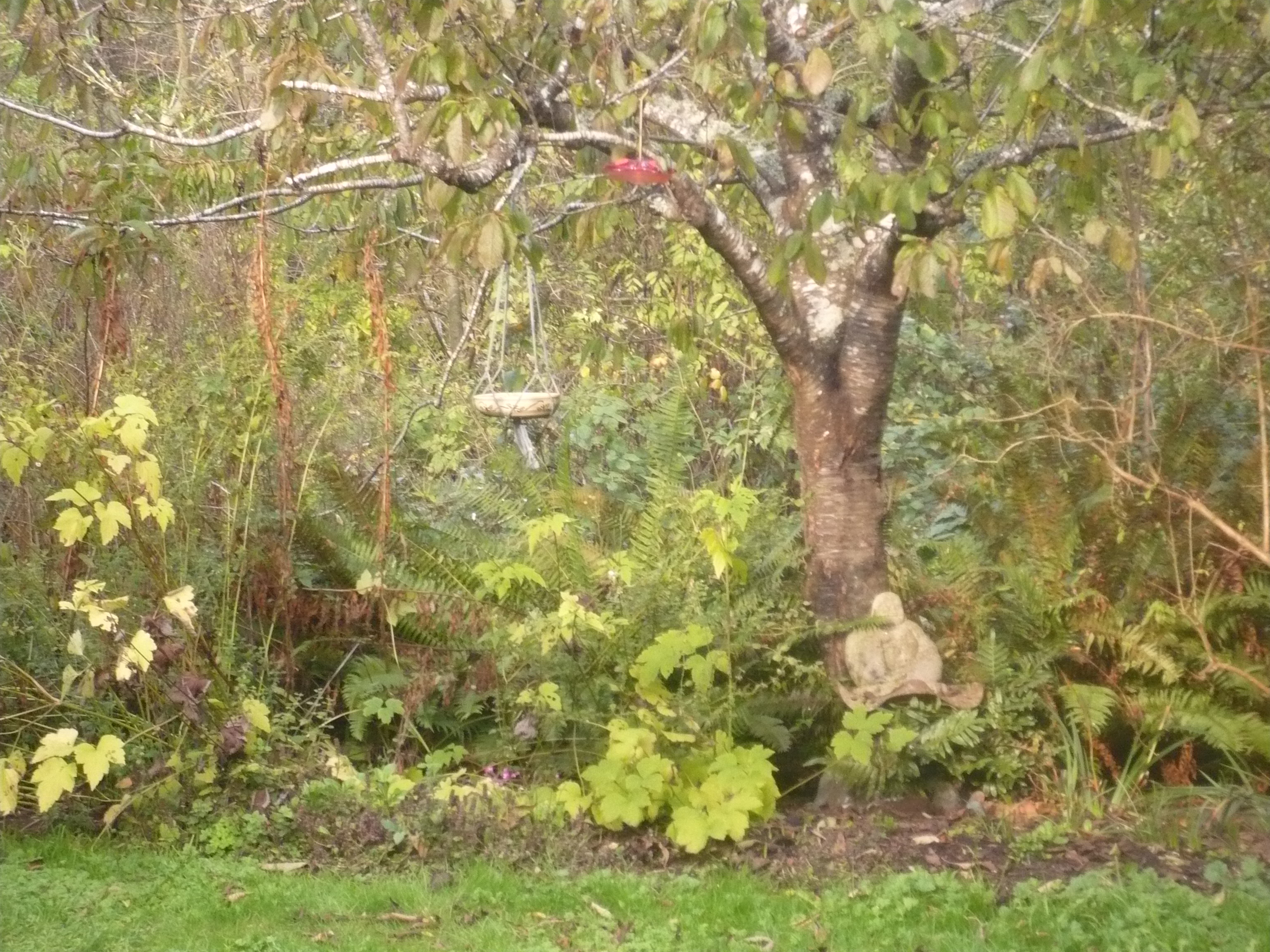Nixon tapes, quoted in the New York Times article, December 10, 2010: “The emigration of Jews from the Soviet Union is not an objective of American foreign policy,” Mr. Kissinger said. “And if they put Jews into gas chambers in the Soviet Union, it is not an American concern. Maybe a humanitarian concern.” “I know,” Nixon responded. “We can’t blow up the world because of it.”
Category: Quotable
Caveat: The Governator’s Legacy
“The less you’re concerned about getting credit, the more work you can get done,” – Arnold Schwarzenegger.
Unilke many, I've never been of the opinion that the governator was insubstantial. He's a smart dude, and a highly unconventional politician. And I think his disavowals of overweening ambition, while disingenuous, are somehow at the same time sincere – if that makes sense. He's ambitious – but it's out of a genuine belief that he could "make a difference" from a political standpoint, as opposed to it being strictly a project of self-aggrandizement.
Nevertheless, I feel that Marc Ambinder's autopsy on the governatorship, now that the man from Muscle Beach is departing office after 7 years, is a bit on fluffy side, journalistically. Perhaps this can be forgiven – journalists who meet or interview the governator always seem to be incapable or resisting the man's undeniable, almost magical, charisma.
The things – the accomplishments – that Ambinder wants to give Schwarzenegger credit for are things that I think would have happened regardless of who was governor. Possibly, they'd have happened even if Gray Davis had remained governor. They are things that have been "on the mind" of California's body politic. The most long-lasting "changes" Schwarzenegger has overseen: the alteration in elections processes that will (hopefully) end partisan primaries and gerrymandering; the checking of the power of the unions; the long-term investment in alternative energy projects or public transportation infrastructure (and actually, I'm sceptical this last will really pan out – it's too easy for money to get removed or rerouted from projects of this sort). Each of these, while advocated actively by the governator, could just as easily have come to pass regardless of who was sitting in the Sac.
I'm far from optimistic about my birth-state's future as a well-functioning polity. But I think the governator reflected (and still reflects, as he moves on) a zeitgeist that includes a fundamental collective self-awareness vis-a-vis its worst dysfunctions. I will always be interested in – even fascinated by – California politics. But, personally, I'm an adoptive midwesterner and, subsequently, mostly committed to my expat lifestyle, at this point.
California is an embarrassing place to have been born. Does that make me one of those "self-hating" liberals? Maybe, except that I still characterize myself as a libertarian, or even as an anarchist, more than as a traditional liberal. I believe in the importance and value of government, but I think it works best when the body politic remains highly sceptical of it. I actually think Schwarzenegger would agree wtih me on that.
Caveat: Waldo
Caveat: Let us go and post an entry
More internet zaniness, from someone called copperbadge. Really quite impressive – a commenter said: "You've given Love Song a modern voice, for the intarweb generation, but the sentiment seems the same."
I will reproduce the first stanza here:
THE .DOC FILE OF J ALFRED PRUFROCK
with deepest apologies to T.S. EliotLet us go then, you and I,
When the evening is spread out against the sky
Like a laptop, put in sleep mode on a table
Let us go through certain half-deserted streets
The blinking-light retreats
Of restless nights in free-wifi cafes
And public libraries with internet
Streets that follow like messageboard argument
of insidious intent
To lead you to an overwhelming blog post
Oh, do not ask, "What, yaoi?"
Let us go and post an entry.In the room the players come and go
Talking of their scores on Halo.
Caveat: Wednesday’s Child
My mother reports that I was born on a Wednesday. I'm not sure about all the woe. I suppose I've had my share, but can I say I've had exceptional amounts in comparison to my other-day-of-the-week peers, on average? Not necessarily. Or is that just revisionism?
Monday's child is fair of face,
Tuesday's child is full of grace,
Wednesday's child is full of woe,
Thursday's child has far to go,
Friday's child is loving and giving,
Saturday's child works hard for a living,
But the child who is born on the Sabbath Day
Is bonny and blithe and good and gay.
Caveat: Practice
I couldn't think of what I wanted to write in this blog. Sometimes I just don't have anything I feel like sharing. I went surfing through my more private journal of notes and observations, looking for something to write here. I found the following unattributed quote, from a while back. Did I make it up? Did I hear it somewhere?
What is sleep? Just practicing being dead. Everything requires practice.
Caveat: what the teachers are themselves
“No printed word, nor spoken plea can teach young minds what they should be. Not all the books on all the shelves – but what the teachers are themselves.” — Rudyard Kipling
Caveat: Boredom, Precisely
"Boredom is your 'fuller life' calling you, and your fear of hearing that call."–Gary Zukav
Yep.
Caveat: Dubyaisms
Two of my favorite Dubyaisms:
"I think we all agree, the past is over." — George W. Bush
And:
"I am a pitbull on the pantleg of opportunity." — George W. Bush
Caveat: Quack
I am listening to A Prairie Home Companion, Saturday night broadcast on MPR (which I listen to at 8 AM Sunday, over here west of the date line). There's a skit retelling of "The Ugly Duckling." Lots of good duck puns. The best: "All these duck doctors are quacks if you ask me."
Caveat: What you shall do
"This is what you shall do: Love the earth and sun and the animals, despise riches, give alms to every one that asks, stand up for the stupid and crazy, devote your income and labor to others, hate tyrants, argue not concerning God, have patience and indulgence toward the people, take off your hat to nothing known or unknown or to any man or number of men, go freely with powerful uneducated persons and with the young and with the mothers of families, read these leaves in the open air every season of every year of your life, re-examine all you have been told at school or church or in any book, dismiss whatever insults your own soul; and your very flesh shall be a great poem and have the richest fluency not only in its words but in the silent lines of its lips and face and between the lashes of your eyes and in every motion and joint of your body." — Walt Whitman
Caveat: Miscellaneous Quotes
"A Freudian slip is when we say one thing, and we mean a mother."–Rob Long
"The best argument against democracy is a five-minute conversation with the average voter."–Winston Churchill
"…doors open to anyone with the will and heart to get here."–Ronald Reagan, on immigration
Caveat: Soul mate
Tuesday was the 10th anniversary of my estranged wife’s suicide. That sounds strange: “estranged.” I feel there would be something dishonest to simply write: “my wife’s suicide” – because if she hadn’t died, we’d be divorced by now – I have no doubt. It’s only on technical grounds that I’m a widower and not a run-of-the-mill divorced guy.
 But the imperfection between us was not a perfect imperfection. Which is to say, there were important, significant, good things between us. And I miss those, sometimes. We had agreed, early on, that we were not “soul mates.” Which was something we both, nevertheless, believed in. Which meant that we knew that ours was an imperfect match. But we were friends – even best friends, for a long time. We could talk about stuff. Or argue about stuff.
But the imperfection between us was not a perfect imperfection. Which is to say, there were important, significant, good things between us. And I miss those, sometimes. We had agreed, early on, that we were not “soul mates.” Which was something we both, nevertheless, believed in. Which meant that we knew that ours was an imperfect match. But we were friends – even best friends, for a long time. We could talk about stuff. Or argue about stuff.
Some time back, surfing around the internet, I ran across the following quote, embedded in someone’s blog:
“People think a soul mate is your perfect fit, and that’s what everyone wants. But a true soul mate is a mirror, the person who shows you everything that’s holding you back, the person who brings you to your own attention so you can change your life. A true soul mate is probably the most important person you’ll ever meet, because they tear down the walls and smack you awake. But to live with a soul mate forever? Nah. Too painful. Soul mates, they come into your life just to reveal another layer of yourself to you, and then they leave.” – Elizabeth Gilbert
This is a definition of “soul mate” that I find challenging. And interesting. Yet… by that definition, there is no doubt that Michelle was, in fact, my soul mate.
[Shown above, one of my favorite pictures of Michelle, with her son (my stepson), Jeffrey, at her University of Minnesota graduation. She had become a chemical engineer, earlier that day.]
Caveat: Heard on the radio
Listening to NPR, Sunday morning (well, that's Saturday afternoon in NPRland). "American Routes."
Interviewer: "What drew you to country music?"
Musician: "I'm a white man."
Caveat: Pet Pop Star
We were in the 4th grade class. We were practicing the following simple dialogue pattern: “Who is he/she?” “He/she is ___. He/she is my ___.” For example: “Who is she?” “She is Mary. She is my sister.”
My co-teacher has put up some possible “people” and some possible “relations”: for the “people,” there were pictures of various famous people or characters the kids were sure to know the names of, including Einstein, Hermione (as in the Harry Potter character), and others; for the “relations,” she provided “aunt” “uncle” “brother” and “sister.”
So there is a 4th grade girl who has the English name of Hannah. The teacher pointed at the picture of 정지훈 (Jeong Ji-hun), a Korean pop star and actor who sings under the pseudonym of “Rain” but also uses his real name for action movies. He’s considered quite handsome in Korea. The girl’s English is excellent – probably the best in the class.
The teacher asked, “Who is he?”
Hannah said, unhesitatingly, “He is Jeong Ji-hun. He is my pet.”
Caveat: “God’s Right”
 This cartoon summarizes, perfectly, my feelings about the immigration debate.
This cartoon summarizes, perfectly, my feelings about the immigration debate.
When those who oppose immigration, legal or illegal, have each taken the time and made the effort to learn at least one Native American language, and have considered the merits of Native American spirituality and culture and “walked a mile in their shoes,” only then will I take their arguments about the need to “control” immigration, and their sanctimonious arguments about “rule of law,” at all seriously.
Until then, I think Herman Melville (160 years ago!) summed up the only, truly ethical stance on immigration quite succinctly, when he wrote: “If they can get here, they have God’s right to come.”
Period.
Caveat: Cynicism is hope
I overheard Miguel Syjuco, a Philippine novelist, being interviewed on Minnesota Public Radio. He said: "Cynicism is the last refuge of the hopeful."
Brilliant quote. And that's… why I'm a cynic. ^_^
Caveat: Io ia
Vicente Huidobro, en su poema "Altazor," juega con formas sumamente experimentales. Sus ultimas lineas:
Io ia
iiio
Ai a i a a i i i i o ia
Caveat: English Teachers
A person dies and goes to Heaven. St Peter asks, "Who is it?" The person replies, "It is I." St Peter says, "Go to Hell, we already have enough English teachers."
Caveat: President X
I have seen so little discussion of Obama's character that I find genuinely plausible, at a core level.
Ta-Nehisi Coates, blogging for The Atlantic, recently, finally managed to strike a chord for me. He writes:
"My sense, in reading about Obama before he was a national politician or even a politician at all, is that this kind of cultural conservatism is genuine and not a ploy. There's a section in The Bridge where, having graduated from Columbia, Obama becomes a kind of ascetic and basically tries to remove himself from all the worldly things that tend to tempt men. It reminded very much of the kind of thing you see black men go through in prison, the most obvious being Malcolm X. Indeed, I've always thought there was something of Malcolm in Obama–the mix of humor and sternness, the notion of re-invention, the cultural conservatism."
The implication is that far from being the kind of left-wing liberal that the Right caricatures him to be, Obama is a kind of "radical centrist," which, in the long run, they should be much more worried about – because he's the embodiment of what happens when "by any means necessary" meets head-to-head, and then merges, with pragmatism, ambition and perhaps, even, compassion. Indeed, maybe Obama's a sort of "compassionate conservative."
Caveat: On Marxism
Just a brief thought. I often describe myself as a marxist. I'm careful to use a small "m". The way I see it, it's a philosophical stance more than a political program – a way of analyzing the world with a focus on economic forms and causes, and with an interest in how ideologies interact with class (and social) consciousness. It is not – and for me, at least, never has been – a set of prescriptions about politics.
In fact, politically, I have tended to lean somewhat libertarian, although as that ideological current gets more and more hijacked by the "tea-party" right in the U.S., I grow less comfortable with the term. Lately, I've been thinking of myself as an anarcho-syndicalist, which is really just code for the libertarian left.
For those who confuse philosophical marxism with, for example, Soviet history, Terry Eagleton makes an important point when he says, "What perished in the Soviet Union was Marxist only in the sense that the Inquisition was Christian."
[This is a "back-post" added 2010-05-23, from handwritten materials]
Caveat: The utility of masks
"Man is least himself when he talks in his own person. Give him a mask, and he will tell you the truth."~Oscar Wilde
This is relevant to language teaching, since speaking a new language requires a type of disinhibition ("hibition"?) very to similar to that required by truth-telling.
Caveat: Projects
“There are projects for the dead and there are projects for the living. Though I confess sometimes I get confused by that distinction.” – Jim White, lyrics from his song “Still Waters.”
I’m pretty confused. Need to focus on my projects, regardless.
What I’m listening to right now.
[Youtube embed added 2011-08-02 as part of my background noise project]
Caveat: 행복찾기
Caveat: Funnier than it is
Caveat: 행복하는 것이 중요해요
I have a little book where I occasionally will write down little aphorisms, that I hear or that I make up. I found the germ of the following that I’d made up last fall. I’ve made some changes to it and thought it sounds very… aphoristic.
“I have made the realization that happiness is not a mental state. It is not something that is given to you, or that you find, or that you can lose, or that can be taken from you. Happiness something that you do. And like most things that you do, it is volitional. You can choose to do happiness, or not. You have complete freedom with respect to the matter.”
Really, I should point out that this insight partly derives from studying the Korean Language. In Korean, the predicate “to be happy” is “행복하다” literally means “to do [or to make] happiness”. When you say “행복해요” (“I am happy”) what you’re really saying is “happiness [I] do.” “행복한 사람” (“a happy person”) is literally “happiness doing [who-is] person” (taking into account the almost exact reverse word-order compared to English).
Caveat: all the buddhas died
I was reading the Economist, yesterday. Apparently, Tsutomu Yamaguchi died. He was one of the very few "double survivors" of the US's atomic bombing of Japan in 1945 — meaning, he survived Hiroshima, and then, 4 days later, survived Nagasaki. What I was struck by were some bits of his poetry, quoted in the magazine:
Carbonised bodies face-down in the nuclear wasteland
all the Buddhas died,
and never heard what killed them.
Caveat: Deistic Distraction
I formulated this last fall, and wrote in a paper notebook. I googled it, and it's unsaid, at least in this form. So I declare authorship of this aphorism at least for now.
"The reason we should not believe in god isn't because there is no god, but because believing in god distracts us from what's important in life."
Here is another quip written nearby in the same paper notebook, that appears original to my own formulation to the best of my ability to research it.
"It hardly matters at all where I end up. Just being there is what's interesting."
Caveat: What we’re here for
OK, I was in limbo for 4 days, and then, this: discouragement.
I always understood it wasn't a "done deal." So Curt broke the news to me last night… he can't hire me. I believe he's sincere when he says he wants to, but he just can't take on the financial burden of hiring a foreigner on an E2 visa — the financial burden in such cases isn't just the matter of my salary (which I was happily and willingly negotiating downward) but a matter of business licenses and legal compliances and such like. So, in the end, it's too much for his small, start-up hagwon to take on. Easier and cheaper to hire Korean nationals and/or F-series visa holders who are free to take whatever job they wish. Curt and I will remain friends, I hope… he has been very kind to me.
Meanwhile, I face one of those flexion points: what next? Plan B. I must plunge into the job market in earnest, because it is truly my intention to stay in Korea. It will take a lot of further disappointments before I give up and go with plan C.
I spent some time surveying the online classifieds this morning for the Korean ESL market. I don't think I need to be that worried… there seems to be an awful lot out there. Given I'm flexible on location and pay, I should find something. But of course, there's the gumption trap of getting started.
I've updated my resume, and I really should try to put together one of those "sample teaching videos" I'd been plotting last summer, but then kind of dropped. I could post it somewhere for potential employers to see.
I've rented a cellphone, finally… this business of trying to get a pre-paid phone (which is cheaper than a rental) on a lowly tourist visa is annoyingly impossible, as far as I've figured out. I'll put my phone number on resume and facebook if anyone wants to call.
Lastly, one more bit of… argh.
I was up at 5 am, this morning, which has been my wakeup time since settling down from the jet-lag. It's not going to be optimal, if I get an afternoon teaching job, but I'm very adjustable, that way — it just takes time. Anyway… this guesthouse I'm staying in is my favorite so far of the various I've sampled in Seoul. It's a bit of the atmosphere of the Casa, where I worked in Mexico City in the 80s (and have stayed there many times since). Of course, it doesn't have the same lefty-liberal bent, here, that prevails at the Casa. So you run into travelers, mostly Japanese and "westerners," and you have occasional conversations.
I had one at 5 am, with this scraggly but friendly fellow American. He was surprised to see someone else up and about. I mentioned my jetlag, briefly, and he was shocked I was "getting up" rather than ending my day. Of course, Koreans are night-owls, so anyone adapted to Korean lifestyle would find it odd, too. But as the conversation progressed, there was this weird, judgemental tone. Like somehow I was morally deficient because I was failing to stay up late and go out drinking each night. "Man, that's what everyone does, in Korea." Well, yes… and, no.
I felt annoyed. I began to feel that this guy, he's exactly the sort of ugly American that is partly why so many Koreans dislike or distrust "foreigners." And then, the icing on the cake:
The conversation had drifted to what I was doing. The job-hunt. I was mulling the fact that I wasn't being very productive. You know, voicing my guilt-feelings, I guess. And his response was quick and aggressive, locker-room toned: "Yeah, man. But that's not what we're here for, is it?" We're not here for being productive? And.. the alternatives?
No wonder so many Koreans see us Americans as lazy. Sigh.
So. 파이팅!
Caveat: Pretty Good Continent
I visited my "friends-from-Korea" Joe and Christine this evening, in Bloomington, Indiana, after driving across from Philadelphia and staying in a motel last night south of Pittsburgh.
Joe said something funny: "I keep following your blog, waiting for you to stop moving, but you keep moving." I've been traveling a lot, definitely. North America seems like a pretty good continent.
More later.
Caveat: Tammy’s Magic
When I was in fifth and sixth grades, I attended that alternative, art-oriented, “hippie” school called Centering School (see blog from 2009-02-02). It was a great place. There was a student named Tammy, who fascinated me from the first time I met her. She was two grades behind me, but that didn’t seem to matter much at such a small, non-hierarchical place. I could somehow sense that Tammy didn’t necessarily come from a perfect home-life (her mom, in her red Volkswagen Beetle always seems kind of “scary” to my young eyes, to be honest, and I knew her dad died in Vietnam). I think knowing about some of the difficult and complicated and fractured home-lives of some of my peers at Centering School was the first time I had the thought: my family may be weird and crazy, but it’s maybe not as messed-up as some others.
Anyway, despite her background… despite the occasional flashes of sadness… she was an amazing, intrinsically happy person. Infectiously cheerful. For no apparent reason. And so, because that was mysterious to me, and unfathomable, I decided that Tammy was magical. That was all I could figure out.
But when I graduated sixth grade, and plunged into the trauma of the public middle school in Arcata, I mostly lost touch with the former friends and playmates and denizens of Centering School. But I never forgot about Tammy. In fact, there were times, when I was struggling to make myself feel happier about life, when I was feeling down, or alone, or overwhelmed, sometimes her name and goofy smile would come to me, and I would think: well, SHE can be happy; why can’t I?
Still, I couldn’t ever really successfully articulate Tammy’s magic. It was just strange and impossible and yet something to aspire to. Until I was teaching at LBridge in Ilsan, Korea. I had a student named Jenny (see blog from 2009-02-12), who seemed like a reincarnation of Tammy. I even remember thinking that about her. And then one day, Jenny, who was fond of writing little “stationary aphorisms” in English on the corners of her assignment papers, wrote the following: “I am happy because that is the most important thing.”
It was like a weird epiphany, when I realized this wasn’t a syntactical mistake, it wasn’t a logic mistake, but rather, that it was simply true and obvious. And it was like, in that instant, that all those years of cognitive behavioral therapy, all those years of puzzling over Tammy’s magic or the mystery of human happiness, congealed into a moment of insight.
It was around the same time that I reconnected with Tammy, after over 30 years. Such is the magic of facebook and the internet. And last night, I stayed with Tammy and her husband and two daughters.
Life is never perfect. Happiness is sometimes elusive, even for Tammy, in her updated, adult form. She’s been through a lot, too. At least as complicated and traumatic as my own life, if not more so. I suspect she’s not always “simply happy.” But she still has that weird ability to look on the bright side of things. She jokingly said, “I can cut off my arm, and see all the blood and feel the pain, and think to myself, ‘well, but I’ve still got my other arm! things aren’t really all that bad.'” That’s Tammy’s magic. And Jenny’s wisdom, which finally allowed me to understand it.
Tammy in 1976, exactly as I remember her:

Jenny in 2009:

![]()
Caveat: “the ashtrays aren’t even full yet!”
My friend Gerry (of Teulon, Manitoba), whom I visited today, is an astronomer and "space geek." The very moment I pulled into his driveway, he accosted me and pointed upward and said, "there goes the International Space Station, just in time to see it!"
Sure enough, the glowing object was passing directly overhead, zooming along. To my uninformed eyes, if I'd seen it without that introduction, I'd have thought it was just some airplane.
Anyway, a little bit later we were talking about the ISS because it showed up in the news on the television that we were sitting and watching, in his living room. And he was complaining about NASA's shortsightedness in wanting to end the program and shut it down. He was talking about the Russians having showed interest in taking it over and continuing to maintain it, if the US gave it up, and he explained the Russian perspective memorably, saying, "… but the ashtrays aren't even full, yet!" That sounded so stereotypically Russian, and it made me laugh very hard, conjuring up the image of a bunch of Russian cosmonauts sneaking cigaratte breaks on the space station when those uppity Americans finally weren't around.
Hmmm, aside from the fire and health hazard, are there other possible issues with smoking in space?
["back-post": posted 2009-11-20]
Caveat: 깊고 간절한 마음은 닿지 못하는 곳이 잆다네
“A deep and sincere heart has no unreachable place.” I had bought a small textile wall hanging with the Korean phrase on it, at a “temple shop” near a Buddhist temple in Seoul. I had that one, and several others. I presented this one to my friends Peggy and Latif who live in my former home in Arcata. They are generous and kind, and the saying suits them very well.
Here is the “A Street House,” where I lived my first 18 years (with a few short periods away from it, in Eureka, Oklahoma City, summers in Washington or Idaho or Boston, etc.):

This is the same house, from a slightly different angle, in 1965 (with my dad’s Model A Ford parked in front):

Here is the back yard, looking from the Kitchen window. That’s the “pump house” that functions as a kind of detached, outdoor bedroom. It was my bedroom during my high school years:

This is the same old pumphouse, in 1967:

This is Peggy’s smiling buddha, under the cherry tree that was just a tiny sapling when I was a kid.

![]()



